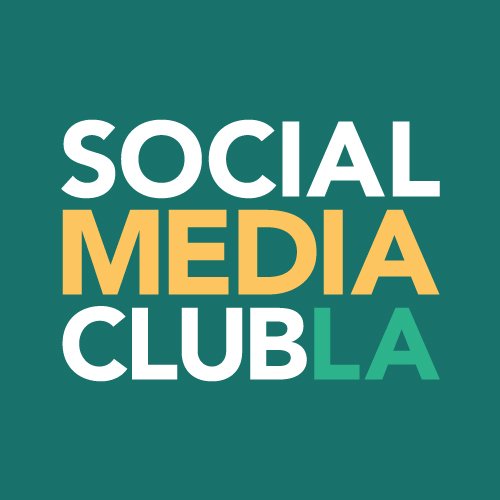Social Media Crisis! Wrap-Up
It’s every social media manager’s worst nightmare: a full-blown public relations crisis on social media. The panelists at our September 24th event went through that nightmare, and we invited them to tell us about it. While we can’t reveal what brands they worked for, they’ve lived through crises ranging from tainted food to executive missteps, resulting in outrage and even boycotts. Yikes!
Meet the panelists:
Serena Ehrlich: Director, Product Marketing Management – Growth at Business Wire. Twitter: @serena
Kayla Perlstein: Founder of Goldenbird Marketing, a social media marketing and business consulting firm. Twitter: @gbm_llc
Siobhan O’Neill-Schwenk: Director of Client Relationship Management for Sway Group, an influencer marketing firm. Twitter: @angelcityblues
And our moderator, AJ Feuerman: Public relations executive with experience representing clients across the entertainment, lifestyle, and technology industries. Twitter: @ajfeuerman
The panel was both terrifying and informative. Terrifying in that most attendees were living in fear that something like this might happen to us. But informative, because if it does, we’ll be prepared! Here’s what we learned:
Define what constitutes a crisis at your organization. According to Serena, something is a crisis “if it impacts your stock price. Otherwise it’s just a bunch of people making noise.” So what we think is a crisis, may not be. Take a look at who is making all the noise, and you may find that it is just one person with 14 followers who is posting/tweeting over and over again. Siobhan’s maxim is, “Thou shalt not make mountains out of molehills.”
Prepare for a crisis. Stay on top of the news for major events that may affect your brand. Although we won’t say who Kayla’s client was, suffice it to say that she learned a storm was coming by watching the news.
Create a Decision Tree. “If A happens, then do B, then do C,” etc., so you know everything your company could face, and how to respond to it. If you’re writing a Decision Tree from scratch, begin by talking to the Customer Service team, because they know all the questions and complaints that customers have. Make a branch of the Decision Tree for every single question. Then talk to your Public Relations and Communications departments because they will know how to answer each of these questions – what you can and can’t say. Add these answers to the Decision Tree, and then get legal to bless it. Don’t forget legal!
Respond swiftly. Brands can no longer wait even a day to respond. Serena has actually studied this and learned that the longer brands wait to respond, the less trust the public will have in that brand. “Every second you wait, you are losing trust.” A fully-fleshed-out Decision Tree cuts down on time because all the executive and legal sign-offs are already done.
Sometimes the right thing to do is not to act at all, and a Decision Tree can help there too. For example, Siobhan worked for a gaming company that had multi-shooter games. Whenever there was a mass shooting, the company stopped posting on social media for three days. Since this was decided ahead of time, everyone knew what to do, and avoided appearing heartless and tone-deaf by continuing to post about these types of games while the reality was playing out somewhere else.
Take them offline. If it’s not a full-blown crisis, but merely one person or a handful of people who are upset, respond quickly by reaching out and asking them to DM you so you can help. Most people just want to feel heard, and reaching out immediately to help solve their problem goes a long way towards alleviating their anger. In fact, many brand advocates became advocates because of a good customer service experience.
The Social Media team should not be leading crisis management. Although the community manager may be the first to suspect a problem, social’s role should be researched. Set up social listening queries so you’re instantly aware if chatter about your brand starts skyrocketing. “Data will help you!” (Another Serena nugget.) Then see #1: Define a crisis, #2: Consult the Decision Tree, and #3: Act swiftly.
Should you hide comments? The short answer is No. The longer answer is It depends: If the client is telling you to, then you probably should. If comments are filled with profanity that violates your community rules (you have those, right? If you don’t, then write them and post them on your social pages), you can probably hide. If it’s a troll that won’t stop trolling, then hide some of them and let him or her burn themselves out. Note: HIDE, don’t DELETE.
Hire a professional crisis manager. If you have a gigantic PR crisis on your hands, then hire someone who specializes in this. Don’t depend on the social media team or even the brand’s PR team, because many are not trained in risk assessment or risk management.
Hopefully we’re all feeling a little less panicked now. Go forth and prepare yourself for a crisis, so if one actually happens, you’ll know what to do.The tools mentioned during the panel were: Tracx, Netbase, Meltwater, and NUVI.
Big thanks to our sponsors Beaming (@livebeaming), My/Mo Mochi (@MyMo_Mochi), Fruit Bliss (@fruit_bliss), Dry Soda Company (@DRYSoda) and as always, General Assembly (@GA_LA).Stay tuned for info about our October 16 panel on social media advertising. Eventbrite coming soon!



